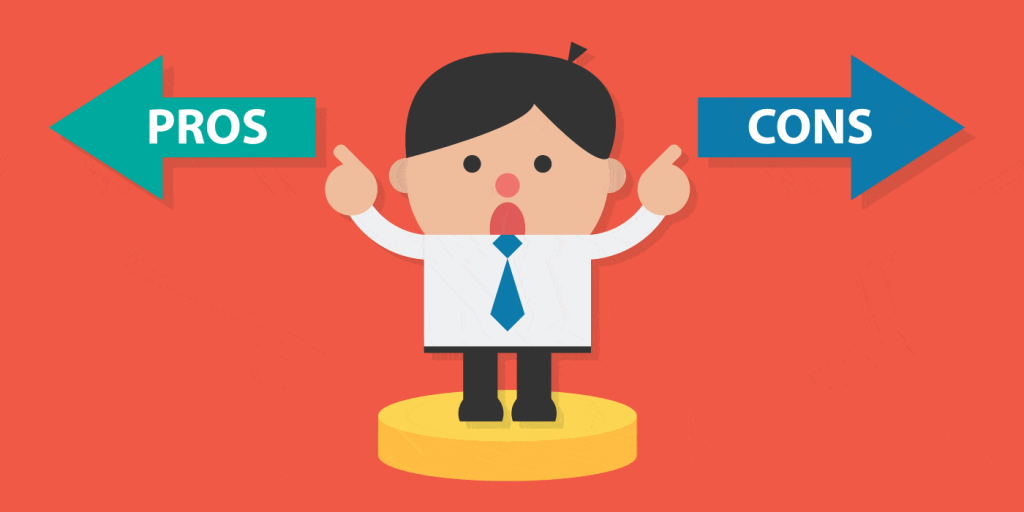How To Become A Successful Real Estate Developer In 2024?
"How to Become a Real Estate Developer" reveals the secrets from acquisition to completion. Learn essential skills, navigate funding, and make your mark on the urban landscape. Start your success story today!
Author:Stefano MclaughlinReviewer:Luqman JacksonJan 22, 202416.6K Shares244.3K Views

A real estate developer is a skilled individual operating in the property development sector. This position entails close collaboration with clients and industry counterparts to oversee the progression of real estate development and sales. To become a real estate developer, one must accumulate experience in the field and cultivate a robust professional network. In this article, we'll discuss How To Become Successful A Real Estate Developerand provides insights into the expectations associated with this profession.
Role Of A Real Estate Developer
A real estate developer is tasked with overseeing various activities involved in the real estate development and sales process. In this capacity, an individual may acquire land, facilitate financing for real estate transactions, collaborate with builders to design and construct structures on properties and strategize on marketing approaches to attract clients.
Real estate developers assume substantial risks in this process as they make crucial decisions regarding property investment and transformation, whether into commercial buildings or residential developments.
Specialization within the development process is common among real estate developers. Some may concentrate on aspects such as land evaluation and investment or collaborate with contractors for building construction.
Others prefer a comprehensive approach, managing the entire process from obtaining permits through interactions with municipalities, and coordinating marketing strategies, to overseeing construction.
Collaboration with various professionals, including engineers, architects, contractors, city planners, inspectors, leasing agents, surveyors, and lawyers, is a common aspect of a real estate developer's work.
In the majority of states, a real estate developer is required to possess a state-issued real estate license, enabling them to act as a sales agentor broker in the buying and selling processes. Many developers initiate their careers in the real estate industry, assisting individual clients in buying or selling homes.
However, there are diverse paths leading to a career as a real estate developer. Some individuals enter the field from backgrounds in construction, urban planning, law, architecture, or finance. The specific background may influence the area of real estate development one chooses to specialize in.
Typical responsibilities for real estate developers encompass:
- Conducting research on properties for development
- Collaborating with various professionals throughout the development process
- Managing budgets for real estate projects
- Negotiating costs and terms with contractors
- Securing funding for development
- Establishing designs and development plans in conjunction with architects and engineers
- Obtaining permits for planned development and construction activities
Average Income For Real Estate Developers
The earnings of a real estate developer can exhibit significant variations, contingent on factors such as experience level, specialization, geographic location, and the number of properties a developer handles concurrently. The compensation structure is often commission-based, tied to the successful closure of deals.
Typical income in the U.S.: $77,310 annually Salaries may range from $17,000 to $179,000 per year.
Qualifications For Real Estate Developers
To pursue a career as a real estate developer, one must fulfill specific criteria related to education, experience, and licensure. Typically, a real estate developer is required to possess a bachelor's degree in a relevant field, such as management, business, or even engineering.
Additionally, many real estate developers hold active real estate licenses in the states where they operate. Additional prerequisites may vary based on the specific role sought, including certifications or mandatory continuing education hours.
How To Become A Successful Real Estate Developer

Embarking on a career as a real estate developer involves navigating specific pathways, and ensuring the acquisition of necessary licensure and experience for success. To become a real estate developer, follow these steps:
- Attain a relevant degree.
- Obtain a real estate license.
- Accumulate practical experience.
- Foster a professional network.
- Develop financial management skills.
- Acquire market knowledge.
- Familiarize yourself with contract matters.
- Explore certification opportunities.
Attain A Relevant Degree
Initiating the journey toward becoming a real estate investor begins with the attainment of a bachelor's degree in a relevant field. While there might not be a dedicated program for real estate development, pursuing majors in management, business, accounting, engineering, construction management, finance, or law can equip you with the necessary skills for the role.
While not obligatory, you might also opt to enhance your qualifications with a Master's Degree in Real Estate Development.
Obtain Your Real Estate License
Securing a real estate license is likely a prerequisite for a career in real estate development. Obtaining this license early on can expedite your entry into the field, facilitating the accrual of valuable experience. To acquire a real estate license, you must undergo preparation and successfully pass a state-issued examination.
Accumulate Experience
While pursuing your college education, actively seek opportunities to gain practical experience in real estate. One avenue is to obtain your real estate license and work as an agent, assisting clients in buying and selling homes within your locality. This hands-on involvement allows you to deepen your understanding of the real estate industry.
Alternatively, consider employment with a real estate developer to further familiarize yourself with the profession and the intricacies of real estate development.
Develop A Network
Establishing a robust network is a crucial element of building a successful career in any facet of the real estate sector. Forge connections with individuals who can provide assistance in areas such as financing, land acquisition, marketing, and client outreach.
Consider participating in professional groups on social networking platforms to connect with others who can contribute to expanding your network and positioning yourself as a credible real estate professional. Attendance at local events within the real estate industry can also prove beneficial.
Acquire Financial Management Skills
Effective financial management is a vital aspect of the real estate development process, necessitating proficiency from any aspiring developer. While pursuing your college education, enroll in courses that emphasize financial planning, budget setting, and project financial oversight.
This educational background will enhance your expertise in handling the financial aspects of the profession.
Comprehend Your Market
The dynamics of the real estate market can vary significantly depending on your chosen work location. Cities differ in terms of real estate competitiveness, with some having highly active markets due to substantial resident and business populations, while others may be less dynamic.
As you accumulate experience in your local real estate arena, invest time in researching trends encompassing both commercial and residential sectors.
This effort will enhance your understanding of the specific market nuances in your prospective workplace. It will also enable you to delineate parameters and make informed decisions about whether to concentrate on residential or commercial real estate development.
Understand Contracts
Given the extensive reliance on contracts in real estate development, it is imperative to possess the ability to comprehend and draft these legal documents. Enrolling in a contracts-focused course can familiarize you with the customary legal language used in these documents, equipping you to navigate and craft them proficiently.
Contemplate Obtaining Certification
While not obligatory for a career in real estate development, certification can distinguish you and enhance your perceived qualifications to potential clients. One notable certification is the Accredited Land Consultant credential offered by the Realtors Land Institute.
To achieve this certification, you must possess an active real estate license, boast a minimum of three years of pertinent experience in development, brokerage, or sales, and be a member of the Realtors Land Institute. Additionally, completion of specific courses through the institute's university and successful passage of an exam are required.
How To Enter Real Estate Investing Without Initial Capital
While real estate developers often contribute some of their own funds, the primary financing typically comes from commercial loans, and a substantial portion of the project's equity is sourced from investors. These investors may include entities such as real estate investment trusts (REITs), pension funds, private equity firms, family offices, and other private investors.
Initially, your options may be confined to private lenders and "angel" investors, which could involve supportive older friends and family members seeking to diversify their retirement income. Private investors might also be attracted to the societal impact of a project, such as the development of affordable housing.
Potential Career Trajectories For Real Estate Developers
Despite the apparent simplicity of a real estate developer's overarching responsibilities, the field offers a diverse array of specialization options. While some developers engage in various facets of development, others concentrate on their particular strengths.
Possible career paths for a real estate developer encompass:
- Architectural design
- Project manager
- Real estate sales associate
- Investment analyst
- Real estate broker
- Asset management specialist
- Consultant
- Risk officer
Many of these roles are typically found within a real estate development company. While the prospect of being an independent real estate developer may be appealing, working within a team provides a better opportunity to specialize in an area aligned with your passion.
The Demands And Rewards Of Real Estate Development
Real estate development is unquestionably a challenging endeavor. It demands resilience, quick thinking, and meticulous attention to detail due to its high-pressure and dynamic nature. Nevertheless, the potential rewards are significant.
- Financial potential- Real estate development offers the prospect of substantial financial gains, with the chance to earn six or seven figures per project. It is crucial to acknowledge, however, that the field carries notable risks, and not all projects achieve success.
- Creative fulfillment - Being involved in the design of a building or community and witnessing its realization can be immensely satisfying. Real estate developers have the opportunity to contribute creatively and leave a lasting imprint on the communities they engage with.
- Community impact- Real estate development possesses the transformative power to shape entire communities, fostering new employment opportunities, enhancing public spaces, and more. Successful real estate developers can make a meaningful impact on the lives of the individuals residing and working in the areas they develop.
The Advantages And Disadvantages Of Pursuing A Career In Real Estate Development
Pros
- High earning potential -Real estate development offers the opportunity for substantial income, with the potential to earn six or seven figures per project.
- Impact on local communities -Real estate development can contribute to positive changes in communities, generating new job opportunities and enhancing public spaces.
- Creative opportunities -The field allows for creativity, as developers collaborate with architects, engineers, and other professionals to design and construct unique and innovative projects.
- Career path flexibility -Real estate development provides a diverse range of career paths and specializations, accommodating preferences from residential and commercial to land development.
Cons
- Long, unpredictable hours- Real estate development demands extensive and unpredictable work hours, necessitating commitment and hard work to see projects through to completion.
- High risk -Projects in real estate development can be uncertain and prone to setbacks, requiring effective risk management and readiness to address unexpected challenges.
- Limited job security -Many real estate developers work independently or as contractors, posing job security concerns. Effective financial management and a solid industry reputation are crucial for maintaining a steady workflow.
- Intense competition -The industry is highly competitive, with numerous developers competing for the same projects and clients. Developers must distinguish themselves and build strong relationships to thrive in this competitive landscape.
Frequently Asked Questions - How To Become Successful A Real Estate Developer
What Distinguishes A Real Estate Investor From A Real Estate Developer?
An investor is an individual who acquires existing properties as investment assets, intending to sell them for a profit when their values appreciate. On the other hand, a real estate developer is responsible for the comprehensive development of a piece of land or a structure in need of renovation. This role encompasses planning, designing, financing, and overseeing the construction phases.
Do Real Estate Developers Manage Both Residential And Commercial Transactions?
While some real estate developers may opt to specialize in a specific sector, others engage in both residential and commercial property development.
How Do I Get A Developer License?
Basically, you submit an application form with a copy of approved plans, alongside a couple of copies of your advert, to the Controller. The term 'controller', in this case, means the relevant local housing authority. Developers pay RM50 for application for an APDL, then RM500 per year for the license.
Conclusion
The road to becoming a real estate developer isn't paved with blueprints, it's built with grit, knowledge, and strategic action. This guide "How To Become A Successful Real Estate Developer" has equipped you with the tools, but the construction starts now. Network, hone your skills, and navigate the market with unwavering vision. Remember, every towering project began as a single brick, laid with passion and purpose. So, step onto your plot, embrace the challenges, and build the real estate empire you've envisioned. The concrete jungle awaits your masterpiece.
Jump to
Role Of A Real Estate Developer
Average Income For Real Estate Developers
Qualifications For Real Estate Developers
How To Become A Successful Real Estate Developer
How To Enter Real Estate Investing Without Initial Capital
Potential Career Trajectories For Real Estate Developers
The Demands And Rewards Of Real Estate Development
The Advantages And Disadvantages Of Pursuing A Career In Real Estate Development
Frequently Asked Questions - How To Become Successful A Real Estate Developer
Conclusion

Stefano Mclaughlin
Author

Luqman Jackson
Reviewer
Latest Articles
Popular Articles


